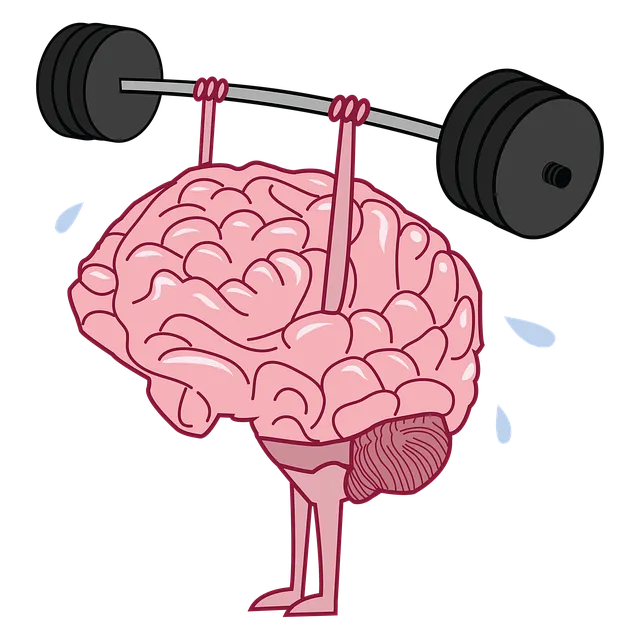Kaiser Permanente Denver has developed innovative training programs focused on the Risk, Resilience, and Strengths (RFM) Model to enhance mental well-being among healthcare professionals. These programs incorporate mindfulness practices like Meditation and Compassion Cultivation, along with communication workshops, to build resilience and improve emotional regulation. By addressing burnout risks and fostering open dialogues about mental health, Kaiser Permanente Denver is cultivating a resilient workforce that can better manage stress and provide quality patient care.
“Resilience is a critical component of overall well-being, especially in demanding professions. RFM (Resourceful Front-line Management) offers a structured approach to building this resilience. This article explores how Kaiser Permanente Denver has pioneered the integration of resilience exercises into their training programs, fostering adaptability and strength among employees. We delve into the understanding of RFM, its benefits, and provide insights from Kaiser’s successful implementation, offering valuable lessons for organizations aiming to enhance workplace resilience.”
- Understanding RFM and Its Role in Resilience Building
- Implementing Resilience Exercises in Training Programs
- Kaiser Permanente Denver's Approach to Enhancing Resilience through Training
Understanding RFM and Its Role in Resilience Building

Resilience is a critical asset in navigating life’s challenges, and that’s where RFM (Risk, Resilience, and Strengths Model) comes into play. Developed by organizations like Kaiser Permanente, this framework goes beyond traditional crisis intervention guidance. It focuses on proactive mental health awareness, aiming to build resilience, especially in individuals who may be at-risk or vulnerable to various forms of depression prevention.
The RFM model is designed to help participants identify and harness their inherent strengths, fostering a sense of control and adaptability. Through interactive Kaiser Permanente training programs in Denver, individuals learn to navigate life’s curveballs, enhancing their emotional well-being and overall mental fortitude. By understanding one’s risk factors and building resilience, people can better manage stress, improve coping mechanisms, and develop a more positive outlook—essential aspects of maintaining good mental health.
Implementing Resilience Exercises in Training Programs

Implementing Resilience Exercises in Training Programs at Kaiser Permanente Denver is a strategic step towards fostering a robust and adaptable workforce. In today’s fast-paced healthcare environment, where professionals face constant challenges and high-stress situations, integrating resilience-building activities into training curricula becomes paramount. By incorporating exercises that cultivate mindfulness, such as Mindfulness Meditation and Compassion Cultivation Practices, employees can enhance their emotional regulation and stress management skills.
These practices enable healthcare workers to respond rather than react to demanding scenarios, thereby improving patient care and job satisfaction. Additionally, effective Communication Strategies are a cornerstone of resilience in any workplace. Training programs that include interactive workshops on active listening, empathy, and conflict resolution equip staff with essential tools for navigating complex interpersonal dynamics, ensuring a harmonious and productive work environment at Kaiser Permanente Denver.
Kaiser Permanente Denver's Approach to Enhancing Resilience through Training

Kaiser Permanente Denver has taken a proactive approach to enhancing resilience among its healthcare providers, recognizing the significant challenges and potential burnout associated with their vital work. The organization’s training programs focus on fostering mental well-being and reducing the stigma surrounding mental illness. Through these initiatives, Kaiser Permanente aims to create a supportive environment that encourages open conversations about mental health.
Their comprehensive strategy includes Compassion Cultivation Practices, designed to nurture empathy and kindness towards patients and colleagues. Additionally, they implement Burnout Prevention Strategies tailored to healthcare providers’ unique needs, ensuring staff members are equipped with the tools to manage stress and maintain resilience in their daily practices. These innovative training programs have been met with positive responses, allowing healthcare providers to build a strong foundation of resilience within the organization.
Resilience is a critical component of overall well-being, and integrating RFM (Resilience, Flexibility, and Mobility) exercises into training programs, as seen in Kaiser Permanente Denver’s innovative approach, can significantly enhance employee resilience. By prioritizing mental and physical well-being, organizations like Kaiser Permanente are equipping their workforce with the tools to navigate challenging situations. This strategy not only benefits individuals but also contributes to a healthier, more productive work environment. The implementation of RFM training in Denver’s programs is a promising practice that other organizations can learn from and adapt to suit their unique needs, fostering resilience among their staff.



